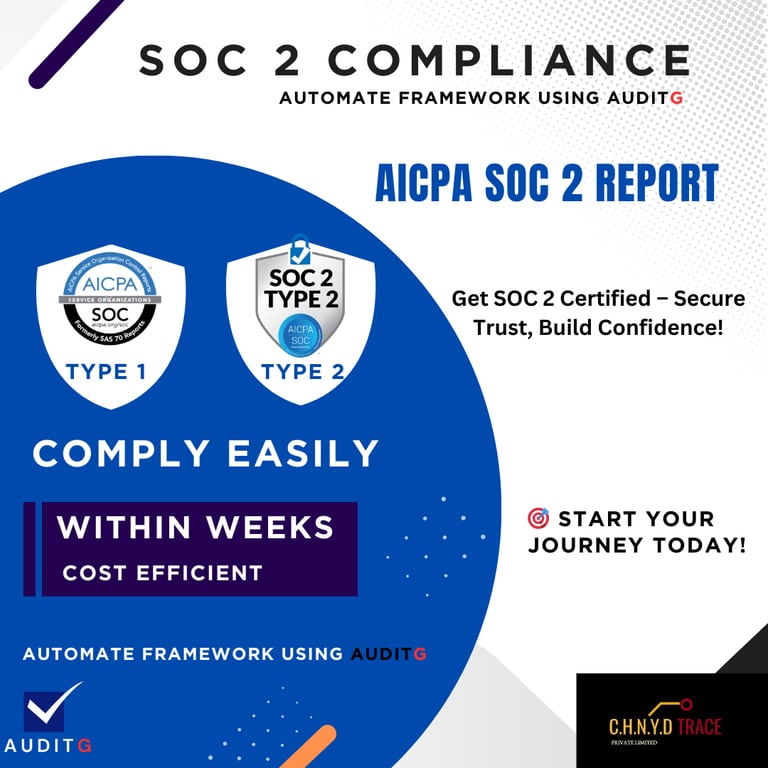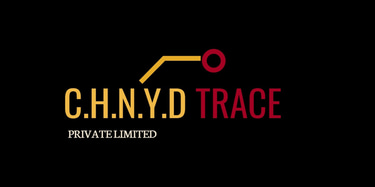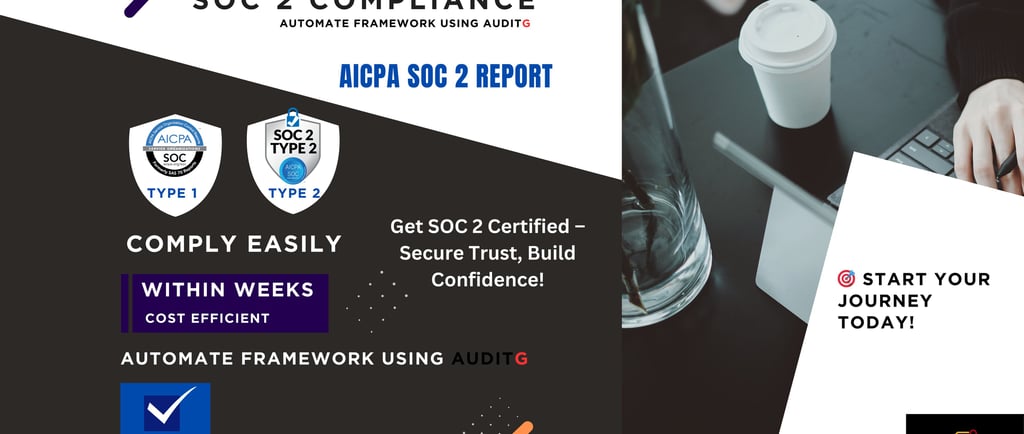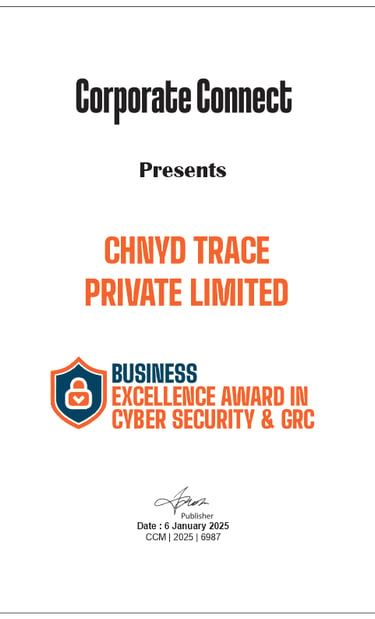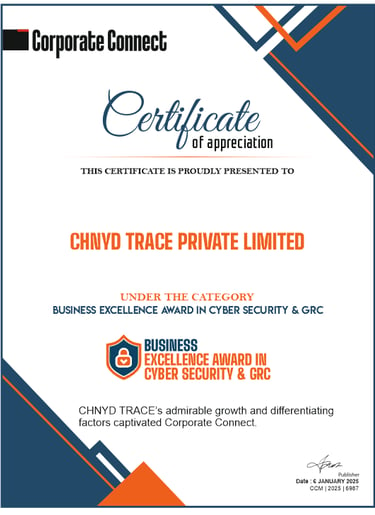what is soc 2 certification
What is SOC 2 Certification? A Comprehensive Overview for Organizations
11/30/20245 min read
Understanding SOC 2 Certification
SOC 2, which stands for System and Organization Controls 2, is a certification framework designed to evaluate and enhance the controls and processes of organizations, particularly those that handle sensitive customer data. This certification is pivotal for service providers, such as technology companies and cloud services, ensuring that they adhere to stringent standards for data management and protection. By achieving SOC 2 certification, organizations demonstrate their commitment to maintaining a robust security posture and safeguarding the privacy of their customers.
The certification is based on the Trust Services Criteria, which encompass five fundamental areas: security, availability, processing integrity, confidentiality, and privacy. Each of these criteria serves to assess how effectively a service organization manages data and protects it from breaches or misuse. For instance, the security criterion focuses on the protection of data against unauthorized access, while the availability criterion measures the usability of the service as agreed upon with customers. Processing integrity evaluates the accuracy and completeness of processing, confidentiality ensures that sensitive information is protected, and privacy assesses the management of personal data according to applicable laws and regulations.
It is essential to recognize the distinctions between SOC 1 and SOC 2 certifications. SOC 1 primarily addresses internal controls over financial reporting, making it suitable for organizations that directly impact their clients' financial data. In contrast, SOC 2 focuses on non-financial aspects related to data security and privacy, making it more relevant for service organizations that handle various aspects of data beyond just financial reports. Understanding these differences is critical for organizations in determining the most appropriate certification to pursue, ensuring that they effectively meet their customers’ needs while safeguarding their data.
The Importance of SOC 2 Certification for Organizations
SOC 2 certification holds significant importance for organizations, particularly in the technology and service sectors, where data management and security are paramount. This certification acts as a testament to an organization's commitment to safeguarding customer data, thereby enhancing trust and confidence among clients. In an era where data breaches are alarmingly prevalent, clients are increasingly drawn to businesses that prioritize security and demonstrate robust data protection measures. By achieving SOC 2 compliance, organizations signal to both existing and potential customers that they adhere to stringent security practices, fostering a sense of reliability.
Moreover, the implications of SOC 2 certification extend beyond customer trust. It plays a critical role in mitigating risks associated with data breaches. Organizations that undergo a SOC 2 audit are compelled to implement and refine internal controls regarding data privacy and security. This proactive approach not only minimizes the likelihood of data breaches but also ensures a swift response in the event of security incidents. In essence, obtaining SOC 2 certification fortifies an organization’s defenses against cyber threats, enhancing their overall risk management strategy.
Additionally, the competitive landscape is continually evolving, with organizations seeking innovative ways to differentiate themselves from their peers. SOC 2 certification provides a distinctive advantage, as it distinguishes organizations as trustworthy service providers committed to protecting sensitive information. This differentiation can be pivotal in attracting new clients and retaining existing ones, thereby contributing to sustained business growth. Essentially, organizations can capitalize on their SOC 2 certified status by promoting it as part of their value proposition, illustrating their dedication to maintaining high standards of data security and operational excellence. In conclusion, the importance of SOC 2 certification cannot be overstated, as it acts as a cornerstone for building customer trust, enhancing risk management, and establishing a competitive edge in the market.
The Process of Obtaining SOC 2 Certification
Obtaining SOC 2 certification is a structured process that helps organizations demonstrate their commitment to security and compliance with the Trust Services Criteria. The journey typically unfolds in several key steps, beginning with a readiness assessment. This initial phase involves an internal evaluation of current systems and processes to identify any gaps in compliance with the SOC 2 requirements. Organizations should assess their existing controls and procedures to ensure they align with the principles of security, availability, processing integrity, confidentiality, and privacy.
Once the readiness assessment is complete, the next step is to define the scope of the audit. This includes determining which systems, processes, and locations will be reviewed. Organizations must decide whether they wish to pursue SOC 2 Type I or Type II certification. A Type I audit evaluates the design of controls at a specific point in time, while a Type II audit assesses the operational effectiveness of those controls over a specified period.
Following the scope definition, organizations must implement the necessary controls to ensure compliance with the defined criteria. This may involve developing new policies, upgrading existing systems, or enhancing staff training programs. Engaging in this proactive approach not only increases the likelihood of a successful audit but also fortifies the organization’s security posture.
The role of independent auditors becomes crucial at this stage. Organizations typically collaborate with third-party auditors who specialize in conducting SOC 2 assessments. The auditors evaluate the organization’s practices against the established standards and provide an unbiased report on compliance. The certification timeline can vary, often taking several weeks to months, depending on the complexity of the audit and the organization’s preparedness.
Throughout this process, organizations may encounter various challenges, including resource constraints, inadequate documentation, or lack of awareness regarding compliance requirements. Addressing these issues promptly through effective project management and stakeholder engagement can facilitate smoother certification. With careful planning and consideration, organizations can successfully navigate the SOC 2 certification process.
Maintaining SOC 2 Compliance: Best Practices
Once an organization achieves SOC 2 certification, the journey towards maintaining compliance is ongoing and requires diligent efforts. One fundamental practice is the implementation of regular audits. These audits serve as a critical tool for organizations to assess their adherence to the SOC 2 criteria consistently. By scheduling periodic evaluations, organizations can identify any non-compliance issues early on, allowing for timely remediation.
Continuous monitoring of internal controls is another best practice that organizations must adopt. This involves not only tracking the effectiveness of current security measures but also being vigilant about the emergence of new vulnerabilities. Utilizing automated monitoring tools can provide real-time insights into system performance and potential risks. Such proactive measures ensure that organizations can act swiftly to reinforce their data protection strategies, maintaining the integrity of sensitive information.
Employee training on data security is equally vital. A comprehensive training program should aim to foster a culture of security awareness among employees, emphasizing the importance of their roles in safeguarding data. Regular workshops, updated training materials, and simulated phishing exercises can effectively equip employees with the knowledge needed to recognize and respond to potential security threats.
Additionally, organizations must remain agile in response to changes in regulations and new industry standards. Engaging with legal experts and industry groups can help organizations stay informed and adapt their compliance frameworks accordingly. This adaptability is essential for maintaining compliance, as failure to keep up with regulatory changes can lead to lapses in security measures.
In addressing any deficiencies discovered during audits, organizations should prioritize a proactive approach to risk management. Identifying and remedying gaps not only enhances compliance but also strengthens customer trust. By implementing a structured process for addressing issues, organizations can ensure that they continuously meet SOC 2 standards while protecting sensitive information from potential breaches.
Contact Us for SOC 2
Reach out for SOC 2 Type 2 certification inquiries and AICPA attestation details. We're here to assist you with your compliance needs.
